[ Retro Scan ] Voice It VT-40 Digital Recorder
October 19th, 2016 by Benj Edwards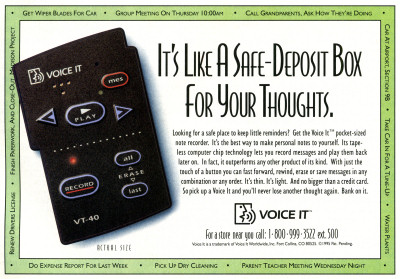 A 40-second safe deposit box, mind you
A 40-second safe deposit box, mind you
In 1994 and 1995, several manufacturers released the first batch of solid state digital voice recorders. All of them used newly available flash memory chips to record audio notes digitally without the need for magnetic tape.
This VT-40 recorder from Voice It was among the first, launching around May 1995 in the US. It could record 40 seconds of audio in 10 audio clips — all that for a mere $69.99 MSRP. Unlike some competing units, the audio clips recorded by the VT-40 were stuck on the recording device and could not be digitally transferred to another medium or a computer. Around the same time, Voice It also launched a higher-capacity unit, the VT-75, which could record 75 seconds of audio.
Despite the convenience of having a small, thin audio recorder with no moving parts, the low capacity of these first generation flash recorders made them more of a novelty than anything else. I remember around 1996 when my dad brought home a keychain digital audio recorder that could record about 30 seconds of audio. It was fun to play with — and a marvel of technology at the time — but it didn’t have enough capacity for useful note taking.
Of course, today we have endless solid state audio recording capacity through removable flash cards, etc., and digital note recorders are the mainstream (and have been for at least a decade). But it’s neat to look back on how it all started.
Discussion Topic: When was the first time you used a solid-state or digital audio recorder? Tell us about it.


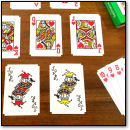
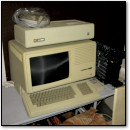
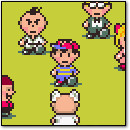
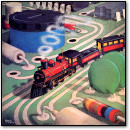
October 19th, 2016 at 7:40 pm
Here I was convinced you’d missed an opportunity to reference Home Alone 2’s Talkboy, but apparently it worked its magic on audiocassette! https://en.wikipedia.org/wiki/Talkboy
October 21st, 2016 at 9:53 am
I used to use these. When I was using my car for business purposes, I would quickly record the mileage before and after the trip so that I could get reimbursed. For the time, they were pretty cool. In fact, I would venture that these would still be useful despite having smart phones. With a phone, you have to turn on the display and then find and open the app. There is something nice about a small unit with dedicated buttons.
October 21st, 2016 at 11:28 am
That’s really neat, Kevin. I agree that smartphones, while convenient, still require some fumbling to get certain apps going. At some point my audio recorder app on my iPhone started loading really slowly, then delaying 2-5 seconds before it started recording, and that’s pretty annoying.
October 24th, 2016 at 9:59 am
I’m sure I’m not alone in keeping various types of recorders by my bedside over the years.
Everyone has had the experience of waking up with an idea or a worry about the next day, knowing that the idea is fleeting or the worry will nag you all night. My dad recommended keeping pen and paper, but I’ve never been good at writing stream of consciousness. I moved from a fisher price tape recorder, micro cassette, work voicemail, and finally the “take a note” command on my cell phone.
October 25th, 2016 at 9:04 am
My parents bought me a micro cassette recorder for college in the 80s. I thought it was a great idea but used it exactly zero times. I figured I could barely sit through lectures once; there was no way I would ever listen to them again. I agree that fumbling with the phone, finding the app, & opening it are barriers to audio note taking, especially in a car in bright sunlight. So I keep a golf pencil & paper next to the stick shift for car scribbles. Old & old school!
October 31st, 2016 at 8:53 am
I got a open with a small 30-seconds recorder button on it also a few years after this came out.Pretty amazing stuff.
I am sure, though that there were things that recorded voice (not on tape) before that. I believe some synthesizer keyboards had voice emulators built-in.